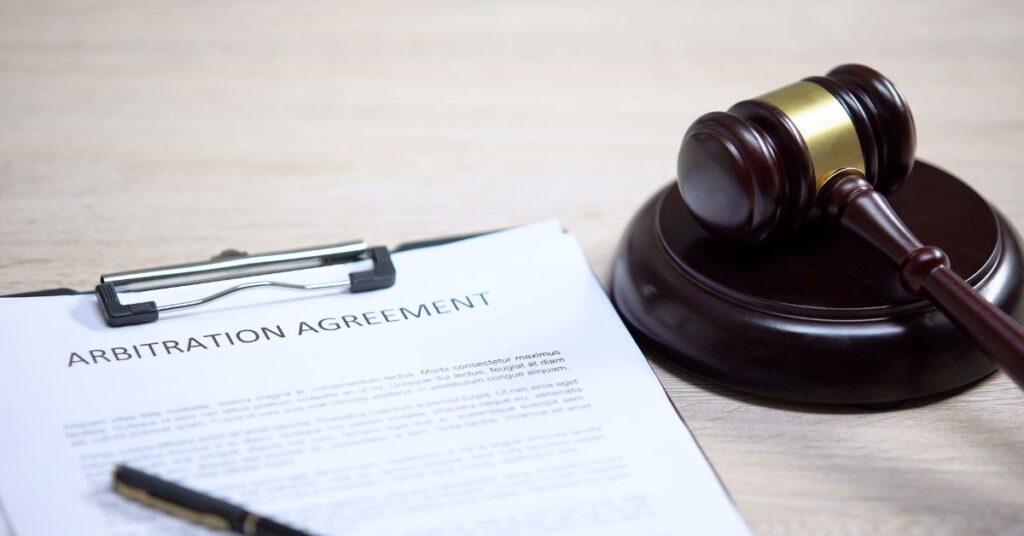Introduction
- One of the primary objectives of the Arbitration and Conciliation Act, 1996 (“the Act”) is to facilitate the swift resolution of disputes. To incorporate the same objective, Parliament has amended the Act in 2016 and 2019, introducing provisions that impose strict time limits on various stages of the arbitration process. These amendments inter alia include (i) an outer time limit for concluding arbitration proceedings; (ii) a requirement for initiating proceedings within 90 days of a court’s interim order; and (iii) limited judicial role in the appointment of arbitrators.
- Further, the Act vide Section 37 of the Act also provides a framework for appeals against certain orders including setting aside or refusing to set aside an Arbitral Award under Section 34 of the Act. A key aspect to consider while filing an appeal under Section 37 is the limitation period for filing such appeals, which has been subject to judicial scrutiny. In light of the same, this article explores the judicial interpretation of limitation period with respect to an Appeal under Section 37 of the Act.
Limitation Period Under Section 34 and Section 37 of the Act
- Section 34(3) of the Act provides a period within which an application to set aside an arbitral award must be filed before a competent court i.e., within three months of receiving the award. Notably, the said provision also provides for an extension of 30 days, subject to court being satisfied with the “sufficient cause” demonstrated by the Applicant for the delay.
- However, the same is not the case with Appeals preferred under Section 37 of the Act. At the outset Section 37 does not specify a limitation period for filing Appeals and from the bare perusal of Section 43 of the Act it is evident that Limitation Act shall apply to the arbitrations as it applies to the proceedings in court. Consequently, one has to harmoniously read the provisions of Act with the provisions of the Limitation Act, 1963 and in particular Article 116 of the Limitation Act which provides for a limitation period for an Appeal to a High Court from a Decree or Order of a lower court within 90 days from the date of such Decree or Order.
- Additionally, the Commercial Courts Act, 2015 stipulates a 60-day limitation period for appeals under Section 37, further complicating the timeline for parties involved in arbitration. Thus, we shall now analyze the various decisions passed by the Supreme Court on this issue and consider the judicial interpretation of these provisions.
Judicial Interpretation
- The interpretation of the limitation period outlined in Section 37 of the Act has undergone extensive judicial examination, with a prevailing consensus among the courts that the Limitation Act of 1963 governs these appeals. Notably, in the landmark case of Government of Maharashtra v. M/s Borse Brothers Engineers & Contractors Pvt. Ltd., which came to the Hon’ble Supreme Court of India when the High Court of Delhi refused to condone the delay in filing appeal in an arbitration matter under Section 37 of the Act beyond 120 days and the High Court of Madhya Pradesh held that it was open to High Court to condone the delay in filing an appeal under Section 37 by virtue of Section 5 of the Limitation Act, 1963. Furthering the same, subsequent appeals were filed against these two decisions for which the Hon’ble Supreme Court disposed off by a common judgement dated 19th May 2020.
- In this case of Government of Maharashtra v. M/s Borse Brothers Engineers & Contractors Pvt. Ltd., the Hon’ble Supreme Court reaffirmed the application of Article 116 of the Limitation Act, emphasizing that this article should guide the handling of commercial arbitration applications under Section 37 and the provisions of Commercial Courts Act, 2015. Further, in this case, the Hon’ble Supreme Court clarified that for appeals concerning claims below INR 3,00,000/- (Indian Rupees Three Lakh only), the limitation period specified in Article 116 of the Limitation Act applies, thus allowing for the condonation of delays in such cases. This ruling underscored the intent to ensure that smaller claims are not unduly hindered by strict time constraints.
- The Supreme Court further in the above-mentioned case has articulated that any delay in proceedings should be addressed as an exception by the appellate court, rather than as a standard practice. Specifically, a delay may be excused only under the following conditions: (a) the party seeking relief has acted in good faith and without negligence; (b) the delay is brief and exceeds the statutory timeframe; and (c) the opposing party does not suffer prejudice to their rights in terms of equity and justice due to the negligence or inaction of the erring party. Furthermore, referencing prior rulings, the Court clarified that establishing sufficient cause for a delay does not inherently grant the appellant a right to have such delay excused.
Conclusion
- To summarize, the limitation period for filing an appeal under Section 37 of the Arbitration and Conciliation Act is governed by the limitation Act, 1963. Although, The absence of a specified timeline in the Act, combined with the application of the Limitation Act and the rulings of the Supreme Court, creates a complex scenario for practitioners and parties involved in arbitration. But surely the Borse Brother Judgement clarifies the position and lays down correct and harmonious interpretation of the provisions of Arbitration Act, Limitation Act, 1963 and the Commercial Court Act, 2015.
- Understanding these nuances is crucial to ensuring that appeals are filed within the appropriate timeframes, thereby safeguarding the right to challenge arbitral awards effectively. As arbitration continues to evolve in India, clarity on these procedural aspects remains essential for maintaining the integrity and efficiency of the arbitration process.
Shruti Mehta, Associate, Solomon & Co.
About Solomon & Co.
Solomon & Co. (Advocates & Solicitors) was founded in 1909 and is amongst India’s oldest law-firms. The Firm is a full-service firm that provides legal service to Indian and international companies and high net-worth individuals on all aspects of Indian law.
“Disclaimer”
The information contained in this article is intended solely to provide general guidance on matters of interest for the personal use of the reader, who accepts full responsibility for its use. The application and impact of laws can vary widely based on the specific facts involved. As such, it should not be used as a substitute for consultation with a competent adviser. Before making any decision or taking any action, the reader should always consult a professional adviser relating to the relevant article posting.
Copyright © 2020 Solomon & Co., All rights reserved.





